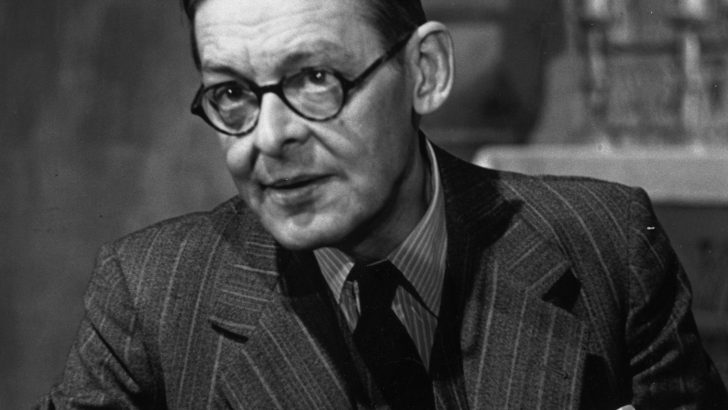The View
T.S. Eliot is one of my favourite poets, and I particularly love parts of the ‘Four Quartets’, although I don’t pretend to understand fully his work.
‘Burnt Norton’, the first of the ‘Four Quartets’, contains references to summer and autumn, but for some reason, I often think of parts of it as particularly appropriate to read at Christmas, perhaps because it is in part a poem about incarnation.
The lovely line from ‘Burnt Norton’, “the still point of the turning world”, often comes into my head when I look at a beautiful rendition of the Nativity. There is a stillness about a crib, a timelessness, as though the stars whirl overhead and angels sing around this moment, long gone and somehow forever present.
Every baby is a miracle. New life is a miracle. Our world teaches us to be numb, and distracted, or in other words from Burnt Norton, to be ‘distracted from distraction by distraction/Filled with fancies and empty of meaning /Tumid apathy with no concentration.’
Distraction
Babies intrude on that distraction. They temporarily fascinate us by their tininess, their vulnerability. Just as we become numb about our daily existence, we can also become numb to the idea that God chose to become a human baby. A crib can remind us of the wonder of that reality. The stillness focuses our attention on the miracle of the infant Jesus.
In other lines, Eliot speaks of “…the enchainment of past and future/Woven in the weakness of the changing body,/Protects mankind from Heaven and damnation/Which flesh cannot endure.”
God’s act of taking flesh protects us from what flesh cannot endure. One could meditate forever on the amazing reality of God containing himself in flesh, and still, never do more than skim the surface of what it means.
The motto of the Carthusian Order is ‘Stat crux dum volvitur orbis’ often translated as ‘the cross stands still as the world turns.’ It is hard not to see the resonance with the ‘still point of the turning world’.
And we need still points as anchors in a chaotic world. True, the world has always been chaotic. Think of bubonic plague in the reign of the Emperor Justinian, which wiped out millions over two years, or the fall of the Roman Empire to the Barbarians, or the evil of concentration camps.
But we are more exposed to chaos today even when our own lives are relatively peaceful. Chaos sends us notifications to our pockets and handbags, on the mobile phones which we obsessively check.
Sometimes the days between Christmas and New Year offer moments to be still and to reflect, even though many retailers insist on hauling their workers away from their families on Stephen’s Day so that we can be distracted by yet another orgy of buying and selling.
I have become increasingly aware that a day without a still point is a scattered day and a less effective day. Yet being a Christian is not necessarily about worldly effectiveness.
It is much more about being transformed. At a mass I attended recently, Fr Michael Screene MSC used the evocative phrase “the divine energy that brought the universe into being and caused Jesus to rise from the dead”. He suggested that we are asked to open ourselves to that divine energy in order to be transformed.
It is an awe-inspiring thought. And yet one that is elusive as a fish slipping away underwater from a grasping hand.
Eliot hints at that, as well, in Burnt Norton. He says that “Footfalls echo in the memory/Down the passage which we did not take/Towards the door we never opened/Into the rose-garden.”
Can one remember something that one did not do, an action that we did not take? If we regard it as remembering that we have been distracted, yes, even distracted from distraction by distraction, we certainly can.
Our culture is obsessed with mindfulness, with being present. Eliot hints that we need much more than that, that we need to be present to a Presence, not just the moment. “Except for the point, the still point,/There would be no dance, and there is only the dance.”
Eliot’s poetry verges on mysticism, in the sense of Karl Rahner’s famous quote that “the Christian of the future will be a mystic or will cease to be anything at all”. Pope Francis has said that a religion without mystics is [merely] a philosophy.
But Rahner also insisted that it was a mysticism of ordinary life, of everyday actions, and that the mystical heights will be reached by only the few.
Christmas offers us a chance to reconnect with the mysticism of the ordinary moment, the moments when we struggle and the moments, in my final quote from Eliot, that allow us to experience “turning shadow into transient beauty”.


 Breda O'Brien
Breda O'Brien T.S. Eliot
T.S. Eliot 